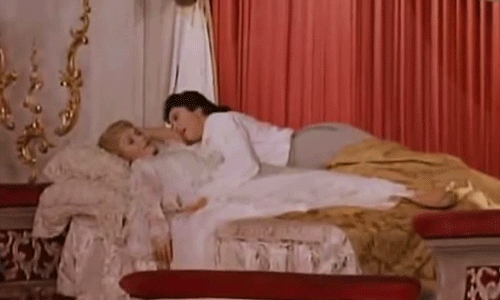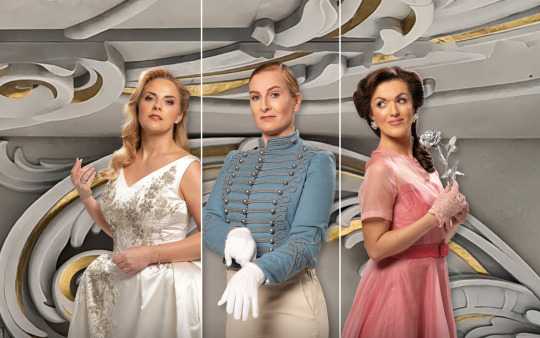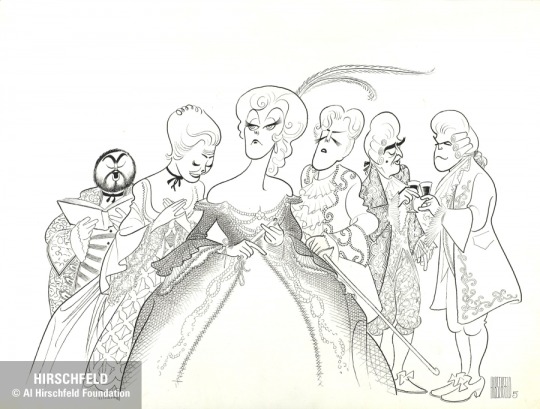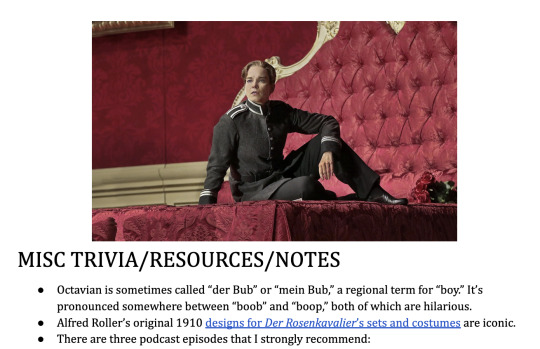#hugo von hofmannsthal
Text
Le buone maniere riposano su un doppio fondamento: dimostrare agli altri ogni attenzione, non imporre se stessi.
Hugo Von Hoffmannsthal, Il libro degli amici, 1922
22 notes
·
View notes
Text
¿De qué nos servirá haber visto tanto?
Y aun así dice mucho aquel que dice noche,
palabra que rezuma gravedad y tristeza
como una miel espesa de panales vacíos.
—Hugo von Hofmannsthal, fragmento de «Balada de la vida exterior», poema antologado en Para un dios no nacido. Traducción de Fruela Fernández.
22 notes
·
View notes
Text
so uhh i study german and our teacher asked us to make presentations about people who have written things in german, and i kind of have a Reputation™ of an opera nerd, so i was asked to make a Hofmannsthal presentation
she also wanted us to be original with visuals. and. uh
also this

HELP
10 notes
·
View notes
Text
Werde durch Freiheit, was du durch Schicksal bist.
Become through freedom what you are through destiny.
Hugo von Hofmannsthal (1874 – 1929), Austrian writer, dramatist, lyricist, and librettist
21 notes
·
View notes
Text
Quando Hofmannsthal contempla l’agonia di un topo, è in lui che l’animale “digrigna i denti al mostruoso destino”. E non è un sentimento di pietà, egli precisa, ancor meno un’identificazione, è una composizione di velocità e di affetti tra individui completamente diversi, simbiosi, tale che il topo diventa un pensiero nell’uomo, un pensiero febbrile nello stesso tempo in cui l’uomo diviene topo, topo che stride e agonizza. Il topo e l’uomo non sono assolutamente la stessa cosa, ma l’Essere si dice dei due in un unico, in uno stesso senso, in una lingua che non è più quella della parola, in una materia che non è più quella delle forme, in un’affettibilità che non è più quella dei soggetti.
Deleuze & Guattari
9 notes
·
View notes
Photo

1914 Léon Bakst, Costume Design for the Ballet ‘La Legende de Joseph’ by Hugo von Hofmannsthal and Harry Graf Kessler.
Private collection.
#1914#costume design#léon bakst#leon bakst#1914 costume design#la legende de joseph#ballet#hugo von hofmannsthal#harry graf kessler#la belle epoque#art nouveau#art nouveau costume#bakst
30 notes
·
View notes
Text

Der Rosenkavalier (1961)
5 notes
·
View notes
Text
Fortunately I found myself amongst an elegant collection of beautifully bound books and poems by Swinburne, Mallarmé and Hugo von Hofmannsthal.
— Kurt Martens, The Dedalus Book of German Decadence: Voices of the Abyss, transl by Ray Furness and Mike Mitchell, (1994)
#German#Kurt Martens#The Dedalus Book of German Decadence: Voices of the Abyss#Ray Furness#Mike Mitchell#(1994)#Algernon Charles Swinburne#Stéphane Mallarmé#Hugo von Hofmannsthal
3 notes
·
View notes
Text

[above: Celine Byrne, Paula Murrihy and Claudia Boyle for Irish National Opera, 2023]
So... I've started a tradition of bringing a group of friends to performances at the Metropolitan Opera and creating illustrated orientation guides to help everyone get prepared for each show. The next one is Richard Strauss & Hugo von Hofmannstal's Der Rosenkavalier, and I'm proud of how the document turned out... even if it does run to 23 pages 😅.
Some excerpts:


Illustration by Al Hirschfeld of the 1982 Metropolitan Opera cast: (L-R)
the Italian tenor, Sophie, the Marschallin, Octavian, Herr Faninal, Baron Ochs

On the final trio:
Musically, the thing that really blew my mind about this number is the way it builds to an unbearably beautiful climax (3:33), then a heartbreaking chord change (3:43), then it feels like gravity turns upside down (3:50), then somehow goes sideways (3:59), then FINALLY resolves (4:10). I’ll never be able to adequately explain how this makes me feel. It blows past all expectations, again and again, and just when you start to catch your breath, the bottom drops out from under you again, revealing a whole new level that you never dreamed was possible.
The most common way to stage this scene is to spread the three singers across the stage, each processing their turbulent emotions alone to the audience. But I also like the staging from Zürich in 2004, which keeps them tightly together and even has the characters touch at key points. It also helps that all three performers look like they’re about to fucking explode.

Feel free to read and share, and let me know what you think!
#opera#Richard Strauss#Hugo von Hofmannsthal#Der Rosenkavalier#Rosenkavalier#opera tag#1910#1911#the 1910s#opera guides#my writing#Celine Byrne#Paula Murrihy#Claudia Boyle#Al Hirschfeld#John Tomlinson#Sarah Connolly#Elīna Garanča#Elina Garanca#Bruno Ravella
11 notes
·
View notes
Text
Ariadne auf Tacos
5 notes
·
View notes
Text
Gli uomini della nostra epoca confusa vivono la loro vita più vera in episodi accidentali, malintesi non chiariti, fruttuose distrazioni.
Hugo Von Hoffmannsthal, Il libro degli amici, 1922
18 notes
·
View notes
Text
youtube
Richard Strauss, Der Rosenkavalier, op. 59 (acto II, «Mir ist die Ehre widerfahren»). Libreto de Hugo von Hofmannsthal.
Christoph Eschenbach, director
Barbara Bonney, soprano
Susan Graham, mezzosoprano
#richard strauss#der rosenkavalier#hugo von hofmannsthal#christoph eschenbach#barbara bonney#susan graham
7 notes
·
View notes
Text

schweig und tanzeee
like, it's my art blog and i get to post things, so here you go, elektra fanart. is this anything
#idk how to tag this#hugo von hofmannsthal#richard strauss#opera#elektra hofmannsthal#elektra#artists on tumblr#my art#art#digital art
11 notes
·
View notes
Text
Die Welt ist dumm, gemein und schlecht
und geht Gewalt allzeit vor Recht.
Ist einer redlich, treu und klug,
ihn meistern Arglist und Betrug.
The world is stupid, mean and bad
and always puts violence before justice.
If one is honest, faithful and wise,
guile and deceit will master him.
Hugo von Hofmannsthal (1874 – 1929), Austrian writer, dramatist, lyricist, and librettist
28 notes
·
View notes
Text
Manche freilich müssen drunten sterben,
Wo die schweren Ruder der Schiffe streifen,
Andre wohnen bei dem Steuer droben,
Kennen Vogelflug und die Länder der Sterne.
Manche liegen immer mit schweren Gliedern
Bei den Wurzeln des verworrenen Lebens,
Andern sind die Stühle gerichtet
Bei den Sibyllen, den Königinnen,
Und da sitzen sie wie zu Hause,
Leichten Hauptes und leichter Hände.
Doch ein Schatten fällt von jenen Leben
In die anderen Leben hinüber,
Und die leichten sind an die schweren
Wie an Luft und Erde gebunden:
Ganz vergessener Völker Müdigkeiten
Kann ich nicht abtun von meinen Lidern,
Noch weghalten von der erschrockenen Seele
Stummes Niederfallen ferner Sterne.
Viele Geschicke weben neben dem meinen,
Durcheinander spielt sie alle das Dasein,
Und mein Teil ist mehr als dieses Lebens
Schlanke Flamme oder schmale Leier.
– Hugo von Hofmannsthal, Manche freilich...
5 notes
·
View notes
Text
“Aber der ganze Mensch, aber der ganze Dichter, aber das ganze Wesen! Ich könnte meinen, ihn gekannt zu haben: sein Auge muß unheimlicher gewesen sein als das Klingsors, des Magiers, unheimlicher als das Merlins, von dem es heißt, es habe wie ein bodenloser Schacht in die Tiefen der Hölle geführt, unheimlicher als das der Medusa. Er konnte töten, dieser ungeheure Mensch, mit einem Blick, mit einem Hauch seines Mundes, mit einem Zucken seiner olympischen Schultern: er konnte das Herz eines Menschen zu Stein erstarren lassen, er konnte eine Seele töten und dann sich abwenden, als ob nichts geschehen wäre, und dann hingehen zu seinen Pflanzen, zu seinen Steinen, zu seinen Farben, die er die Leiden und Taten des Lichtes nannte und mit denen er Gespräche führte, stark genug, um die Sterne des Himmels zum Wanken zu bringen…. Und dieses leuchtende Zauberschloß, das er aufbaute aus unvergänglichem Material, meinen Sie, es hatte keine Verliese, in denen Gefangene einem langsamen Tode entgegenwimmerten? Aber er geruhte, sie nicht zu hören, weil er groß war. Ja, wer hat denn Heinrich von Kleists Seele getötet, wer denn? Oh, ich sehe ihn, den Greis von Weimar.”
Hugo von Hofmannsthal, Über Charaktere im Roman und im Drama (1842)
#hugo von hofmannsthal#goethe#this might become my favourite passage on Goethe#it’s brutal it’s elegant it’s awful in the best sense#wer hat denn Heinrich von Kleists Seele getötet?#ich sehe ihn den Greis von Weimar#it’s so haunting me
2 notes
·
View notes